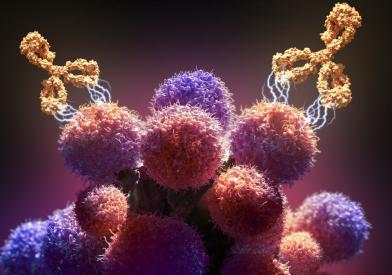What Is Endometrial Cancer?
Endometrial cancer is a disease in which malignant (cancer) cells form in the endometrium. The endometrium is the lining of the uterus, an organ in a woman's pelvis where a fetus grows. The uterus consists of three layers:
- The endometrium, which is shed during a menstrual cycle
- The myometrium which is the muscle layer
- The serosa, which is the outside layer or covering of the uterus
Endometrial cancer is a different type of cancer than cancer that occurs in the muscle layer of the uterus, which is called a sarcoma or "leiomyosarcoma."
Learn about clinical trials for endometrial cancer.

Risk Factors
Risk factors for endometrial cancer can include:
- Taking estrogen alone (without progesterone)
- Being overweight/obese
- Diabetes mellitus
- High blood pressure
- Taking tamoxifen for breast cancer or breast cancer prevention
- Family history of certain cancers or Lynch syndrome, an inherited condition that increases the risk of developing certain cancers (most commonly colon cancer, endometrial cancer, and ovarian cancer)
Signs and Symptoms
Signs and symptoms for endometrial cancer can include:
- Bleeding, spotting, or discharge not related to menstruation (periods)
- Bleeding, spotting, or discharge in a post-menopausal woman should prompt medical evaluation
- Difficult or painful urination
- Pelvic pain
- Pain during sexual intercourse
Diagnostic Tests
- Endometrial biopsy
- Dilatation and curettage (D&C)
- Transvaginal ultrasound
Learn details about how we diagnose endometrial cancer.
Treatments
Treatment options include:
- Surgery
- Radiation therapy
- Chemotherapy
- Hormonal therapy
- Immunotherapy
Learn details about how we treat endometrial cancer.
Factors Affecting Recovery
Your prognosis (chance of recovery) and treatment options depend on the following:
- The stage of your cancer. This is determined by how much the cancer has involved the uterus, how much the cancer has spread specifically into the muscle layer and whether the cancer has spread locally to other organs near the uterus, such as the cervix or more distantly to other places in the body.
- How the cancer cells look under a microscope, which is referred to as the "grade" of the cancer
- The specific pathology type of the cancer






